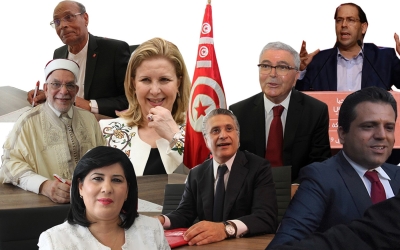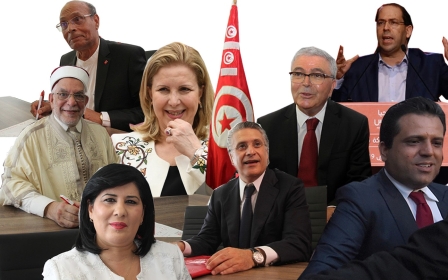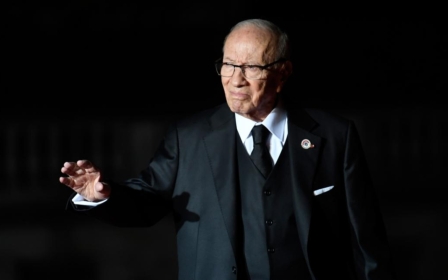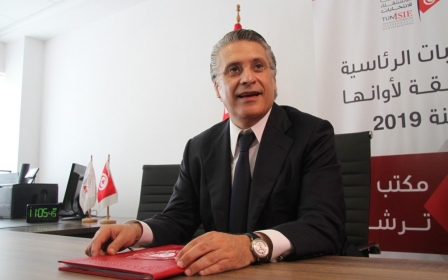Tunisia's presidential campaign kicks off ahead of snap elections
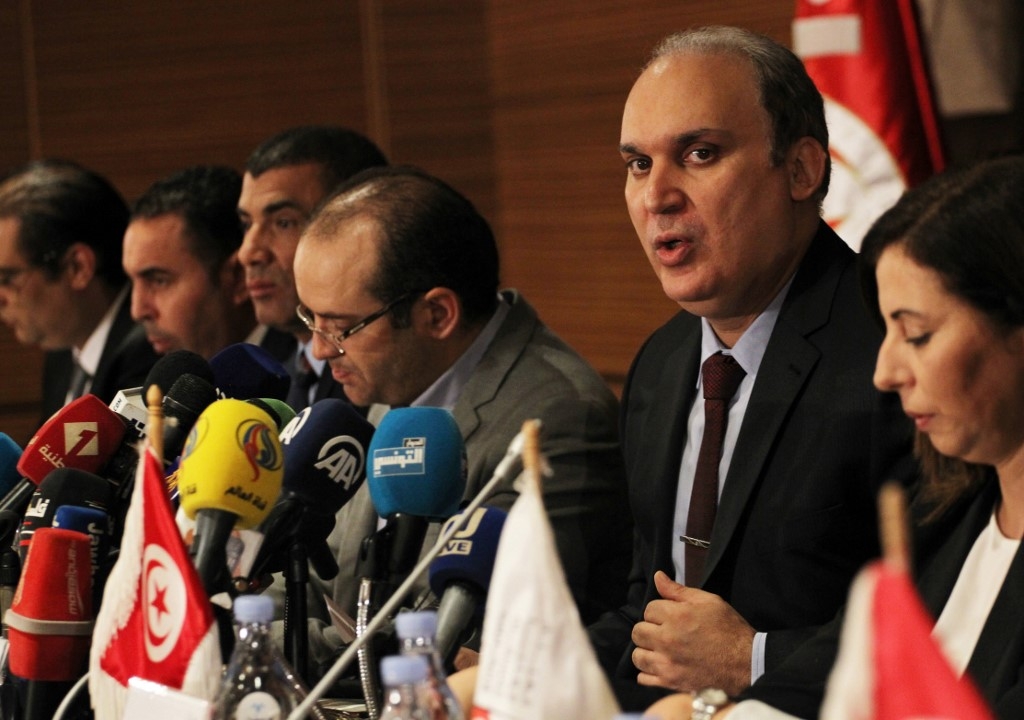
The Tunisian presidential campaign kicked off on Monday with 26 candidates from across the political spectrum competing to become the country's third president since the 2011 revolution.
The campaign runs until 13 September, two days before the elections, with nearly seven million registered voters invited to participate in what is now the only surviving democracy from the days of the Arab Spring.
The vote takes place against the backdrop of security and economic turmoil, as one police chief and three Islamist militants were reportedly killed in a shootout near the Algerian border on Monday.
The race is expected to witness fierce competition between prominent frontrunners, including two former prime ministers, one former president, and one former defence minister.
On Saturday, Tunisia's electoral commission (ISIE) announced the final list of 26 candidates to stand in the 15 September poll to elect a successor to late president Beji Caid Essebsi.
New MEE newsletter: Jerusalem Dispatch
Sign up to get the latest insights and analysis on Israel-Palestine, alongside Turkey Unpacked and other MEE newsletters
The race had initially been scheduled for 17 November, but was brought forward after Essebsi's death, at the age of 92, in July.
Essebsi had been elected in the wake of the 2011 revolt that overthrew former leader Zine El Abidine Ben Ali.
Since his death, parliamentary speaker Mohamed Ennaceur has been serving as interim president for a transitional period until a new president is elected.
According to Tunisia's constitution, the president's mandate is limited to foreign policy, defence and national security. The prime minister, chosen by parliament, has authority over domestic affairs.
The upcoming president will face the challenge of fixing the state’s large budget deficit and reviving the country’s stagnant economy, with high inflation and an unemployment rate of 15.2 percent, up from 12 percent before the revolution.
A flurry of candidates
Head of Government Youssef Chahed has meanwhile delegated his powers to public service minister Kamal Morjane, in order to focus on his presidential campaign.
Chahed told Reuters last week that Tunisia was still facing the challenge of dealing with militant groups, including Islamic State (IS), four years after two militant attacks killed dozens of tourists in the country.
Chahed's popularity, however, has dipped over the past year as his government was blamed for failing to fix Tunisia's high unemployment rate and deteriorating economy.
He reshuffled his cabinet in November in a bid to end the crisis, but Essebsi's son Hafedh, the current leader of the secular Nidaa Tounes party, has called for Chahed's dismissal, blaming him for the dire economic situation.
Chahed went on to establish his own party, Long Live Tunisia, consisting of mostly former members of Nidaa Tounes. The party is now the second largest in parliament after Ennahda.
Chahed, 43, is competing with many prominent figures, including defence minister Abdelkarim al-Zbeidi, 69, vice president of Ennahda Abdelfattah Mourou, 71, and former prime minister Mehdi Jomaa, 57.
Analysts say Chahed, Mourou and Zbeidi are likely to be the frontrunners.
Mourou is the Ennahda party's first-ever presidential candidate since it was established 38 years ago. The self-described Muslim Democratic movement is the country's largest political party.
Zbeidi, a former Essebsi ally, is running as an independent, backed by Nidaa Tounes.
Former Tunisian president Moncef Marzouki will also stand in the race, along with Nabil Karoui, a businessman and owner of the private channel Nessma TV, who has recently been detained on a range of corruption charges.
Karoui remains on the final candidate list, despite his ongoing prosecution. His campaign says the charges are politically motivated, and has begun campaigning for him in defiance of the arrest.
Middle East Eye delivers independent and unrivalled coverage and analysis of the Middle East, North Africa and beyond. To learn more about republishing this content and the associated fees, please fill out this form. More about MEE can be found here.


